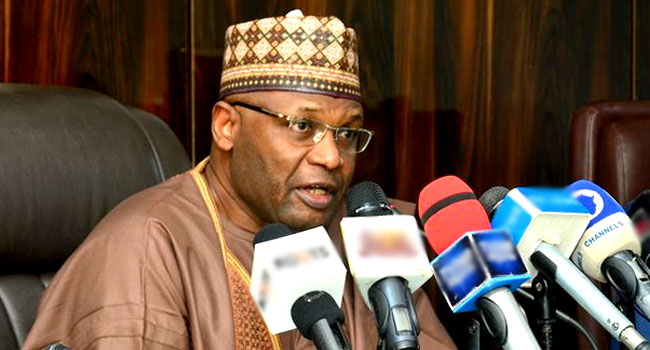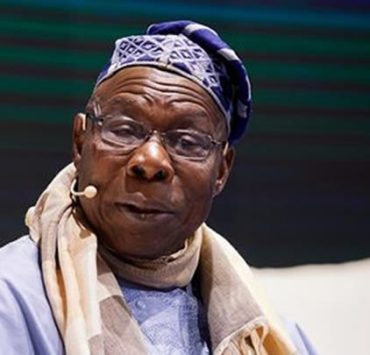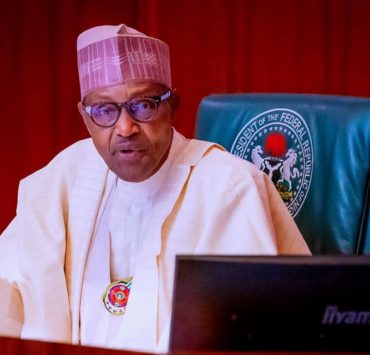Elections Will Hold Despite Insecurity, Says INEC

Lawyard is a legal media and services platform that provides…
The Independent National Electoral Commission (INEC) on Thursday maintained that the 2023 general election will hold despite the security challenges in the country.
Speaking at the presentation of INEC 2022 to 2026 strategic Plan and 2023 Election Project Plan, National Chairman of INEC, Prof. Mahmood Yakubu, also reiterated that claims doing the rounds that the Permanent Voter’s Card could expire was misleading, because there was no such thing.
While explaining that double registration by any voter remained an electoral offence, Yakubu said, “As you may be aware, the election will be conducted for 1,491 constituencies nationwide, made up of one presidential constituency, 109 senatorial districts, 360 federal constituencies, 28 governorship elections and 993 state constituencies.
“The election will involve an estimated one million electoral officials (both permanent and temporary or ad hoc staff) deployed to 176,846 polling units in 8,809 Wards and 774 Local Government Areas across the country.
“The election will be governed by a new Electoral Act 2022, which contains many progressive provisions that, will enhance the capacity of the Commission to conduct elections and manage the electoral process better,” he explained.
The INEC chairman further said, “Let’s once again reiterate that the dates for all activities in the Timetable and Schedule of Activities for the 2023 General Election are firm and fixed and all stakeholders are advised to take this into consideration in planning their activities.”
He said the ongoing Continuous Voter registration (CVR) exercise would end on June 30, 2022, while all eligible voters that were yet to register should do so on or before that date if they intended to vote.
Stressing that the PVCs of validly registered voters from the first and second quarters were ready and available for collection at designated centres nationwide, Yakubu said, “I would like to appeal to all Nigerians, who registered between June and December 2021 to collect their Permanent Voters Cards (PVCs) in person as no PVCs will be collected by proxy.
“Let me also reassure those who registered between January and March 2022 as well as those who are doing so until the end of the exercise that their PVCs will be ready for collection long before the 2023 General Election.
“For emphasis, the Commission once again reiterates that PVCs have no expiry dates. We want to assure all registered voters that PVCs issued by the Commission remain valid for all elections.
“We have encouraged those whose lost their voters cards or whose cards are damaged to approach any of the registration centres to apply for replacement. Similarly, voters who had issues with their accreditation in previous elections have been encouraged to revalidate and update their information.
“In addition, those who wish to transfer their registration from one location to another within a particular state or to relocate entirely to another state of the federation can do so at any of the registration centres nationwide. These steps are in compliance with the law in order to serve Nigerians better.
“The claim that PVCs expire is misleading. Citizens are, therefore, advised not to register more than once as multiple registration is an offence under the Electoral Act. Anyone engaged in the act of double or multiple registration is liable to prosecution. No citizen should engage in it or encourage others to violate the law,” the INEC chairman warned.
According to him, INEC relied on three key elements to reach its strategic plan for the 2022 and 2026 Election Project, adding that, “First is the knowledge and experience gathered from the conduct of previous elections. Second is the use of innovations to enhance electoral integrity and improve voter experience. Third is the institutionalisation of the culture of planning.
“These elements have guided the Commission through three successive general and several off-cycle and bye-elections. Consequently, our elections are getting better, electoral outcomes less contentious, and voter experience of the electoral system increasingly more participatory and inclusive.”
He explained that the Strategic Plan 2022-2026 and the 2023 Election Project Plan, drew lessons from, and thoroughly reviewed, the level of implementation of the last plans.
His words: “They build on the successes of the preceding plans, especially, in the planning and conduct of the 2019 General Election as well as off-cycle and bye-elections. Against the backdrop of the impact of the COVID-19 pandemic and the current security situation in the country, both plans had to prioritise the institutionalisation of the Commission’s processes for the effective delivery of its mandate by focusing on capacity-building.”
This, he added, included, “The promotion of professionalism, encouraging greater synergy among departments, improving efficient utilisation of resources, increased deployment of technology as well as greater sensitivity to threats to the electoral process as well as election personnel and infrastructure.”
These concerns, he posited were reflected in the Plan’s five strategic objectives, each of which identified several key actions, key activities and key outcomes that constituted a broad guide to the vision of the Commission to provide electoral operations, systems and infrastructure to support the delivery of free, fair, credible and inclusive elections.
He noted also that, the plan further formed the basis for the Election Project Plan, which focused on five key objectives identified by the Commission as critical for the successful conduct of the 2023 General Election.
The INEC chairman, therefore, posited that, “By next week, the Commission will conclude the revision of the Regulations and Guidelines for the Conduct of Elections to comply with the provisions of the Electoral Act 2022.
“Work has also commenced on the review of the manuals for the training of election duty personnel. With the planning processes virtually completed, the Commission will now focus its attention on election technology and election administration.
“We have carefully listened to the demand of Nigerians for seamless processes, particularly, with regard to enhanced voter education, better distribution of voters to polling units, quality training of election personnel, functionality of electronic devices, improved logistics, prompt commencement of polls, availability of assistive devices for persons with disability at polling units and greater transparency in result management. We are also aware of the security challenges and their impact on the electoral process.
“We will continue to engage early and intensely with the security agencies to ensure the safety of our personnel and materials, accredited observers and the media and, above all, the voters. Clearly, these are challenging times but we are determined that election must hold in 2023.
“However, this is a shared responsibility. INEC plays a critical role but the Commission alone cannot deliver the elections we all desire. I, therefore, appeal to all Nigerians to joins hands with us in ensuring that we make a success of the process.”
In his comments, Sanusi Galadima, who represented the NSA, assured INEC and Nigerians of adequate protections during the general elections, even as he commended the commission for deepening democracy in Nigeria through technology.
On his part, the Chairman of the Inter Party advisory Council, Sani Yagbaji, called on the judiciary to avoid a situation, where it would render ridiculous judgements as was the case in the Imo State governorship election, where the Supreme Court judgement did not reflect the decision of voters on ground.
Lawyard is a legal media and services platform that provides enlightenment and access to legal services to members of the public (individuals and businesses) while also availing lawyers of needed information on new trends and resources in various areas of practice.













